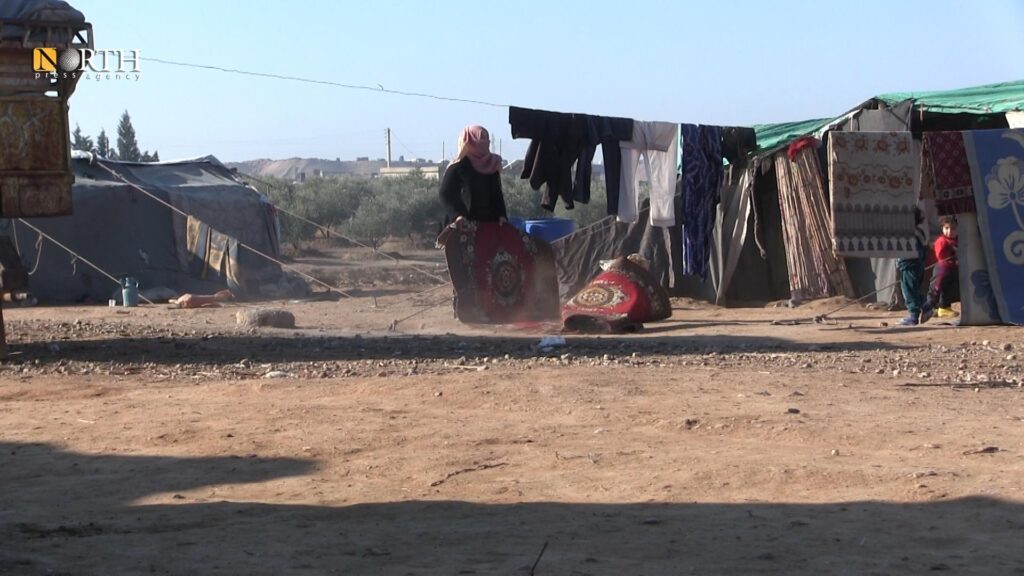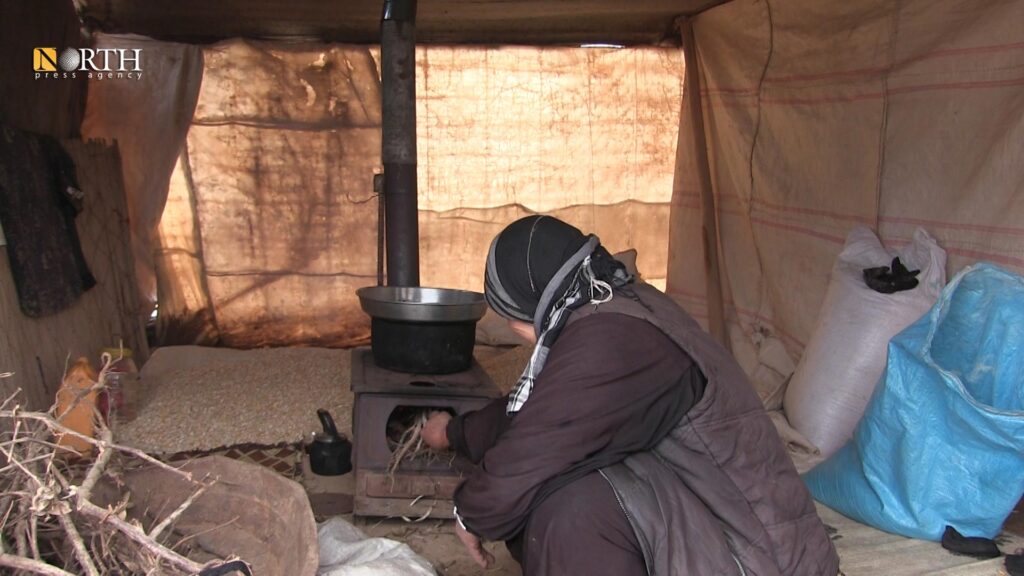RAQQA, Syria (North Press) – Noura al-Ali does not know what to do; she is an IDP and a widow. What makes matters worse is her child who has convulsion.
Al-Ali, 38, who lost her husband three years ago, lives in Hatash IDP camp, about 30 km north of Raqqa city in north Syria, with her sick son who is always in need of medicine.
Widows who reside in permanent and makeshift camps suffer from harsh humanitarian conditions due to losing their husbands.
Al-Ali works in nearby farmlands to secure her family’s living, but the wages she gets could barely cover buying bread, so she was obliged to take her four children with her to work.

The widow said that she needs to be supported by humanitarian organizations, especially that her tent is worn out and does not shield her neither from summer’s heat nor from winter’s cold.
Since working in farmlands is seasonal, it falls short of meeting all their needs amid high prices of products, she told North Press.
Recently, prices have skyrocketed owing to the rapid fall of the Syrian pound (SYP) against the dollar, reaching 6.700 SPY for every $1.
Sham al-Hussein, a 30-year-old widow and a displaced person in the Hatash IDP camp, had no choice but to reside in her father’s tent since she was unable to keep up with the costs and cover her expenses.
The young widow, who lost her husband six years ago, is unable to carter for her son with the few hours she works each day as a day laborer since it is not enough to meet her demands.
Widowed women and other displaced females partly support their families to cover their expenses by working in makeshift camps on in nearby farmlands. In addition, they collect trash plastic and soft drink cans to sell.
Siham al-Ali, 51, started working in fields with her young children to secure their livelihood after her eldest children got married.
In light of the harsh living conditions faced by the displaced in camps, al-Ali says that her eldest children been taking care of their families, leaving her alone in dealing with the misery that IDPs in camps endure.
Women are sometimes obliged to work in fields to obtain firewood which – despite having adverse health effects – they use in cooking and heating because they lack the money to purchase heating oil.

She adds that after the death of their father, her married children took their share of the family’s sheep, even though livestock consumes more than they produce.
Due to inadequate statistics and a lack of interest in this regard, it is difficult to calculate the specific number of widowed women living in the makeshift and permanent camps in Raqqa.
Away from the active frontlines, the lives of Syrian women, men and children have become more difficult than ever, with more than 12 million people in the country facing food insecurity, according to report by the World Food Program.
A report by World Vision revealed that the vast majority of women surveyed, about 95 percent, experience negative thoughts or feel hopeless with almost no access to mental health support.
According to the research, 88 percent of women lack access to essential services such as health care (42 percent), shelter (31 percent), and protection (30 percent).
After losing her breadwinners, her husband and son, the 65-year-old Jazia al-Sawied has been living in terrible conditions. As she grew older, the IDP has begun to seek support from humanitarian organizations.
The elderly woman hopes that NGOs will support them with food parcels, as she is unable to work a daily paid job due to her age.

